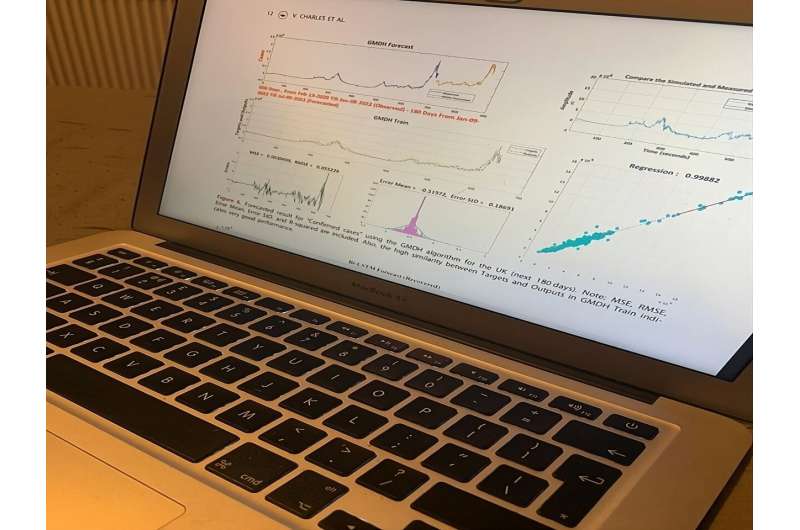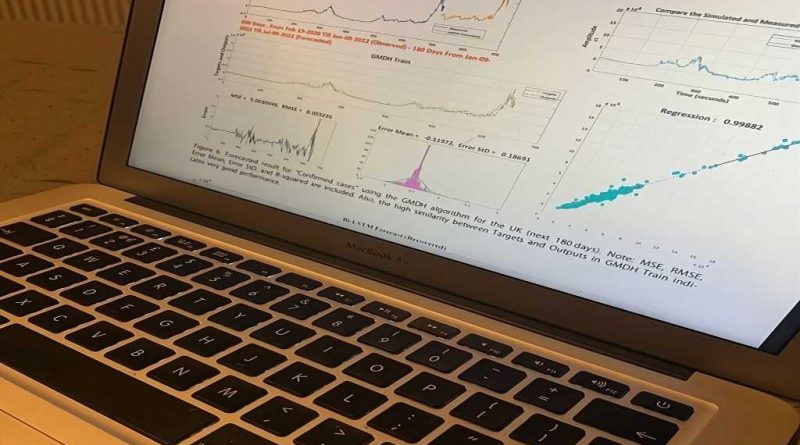Empowering pandemic preparedness by leveraging artificial intelligence and data governance

“When will the COVID-19 pandemic end?” This question has been on our minds for years, and it often feels like an answer is just out of reach.
As we reflect on the unrelenting nature of this pandemic, it’s important to acknowledge that the fight against COVID-19 is far from over. While new waves might not strike with the same ferocity as before, their prolonged existence demands our full attention. New variants keep emerging, and it is unclear how effective our current vaccines will be against them.
At the same time, many people remain unvaccinated, have not developed immunity, or have compromised immune systems. For them, the virus is still a significant threat.
For all of these reasons, the COVID-19 pandemic requires continuous special attention. As the virus keeps evolving and challenging our understanding of the pandemic, one thing remains clear: even with vaccines, we need robust forecasting and control strategies to contain further waves.
Robust forecasting of the numbers of future infections, recovered patients, and death cases is essential. It holds the key to effective pandemic management. More precisely, robust forecasts serve as a guiding light for health care systems and policymakers, enabling them to allocate resources efficiently, plan for contingencies, and respond proactively.
In this endeavor, a ray of hope emerges in the form of artificial intelligence and machine learning (AI/ML) algorithms. These algorithms, when coupled with rich data, become even more powerful in shaping our pandemic response.
In a recent study published in the Journal of the Operational Research Society, we explored the potential of three cutting-edge AI/ML algorithms: Group Method of Data Handling (GMDH), Bi-directional Long Short-Term Memory (Bi-LSTM), and Genetic Algorithm + Neural Network (GA+NN). We used publicly available data to fuel these algorithms and generate insights that can contribute to enhancing pandemic preparedness and response.
What did we learn?
First, these intelligent algorithms have a remarkable ability to forecast the course of the pandemic, and they’re reliable, even with the pandemic’s ever-changing dynamics. They thrive on rich data, and the more public data we have available, the better their forecasts become.
Second, they can offer longer timeframes for decision-makers to strategize and allocate resources effectively, up to six months ahead.
Third, data quality is pivotal, and regular updates and continuous record-keeping are indispensable for future robust forecasting. This is where data governance comes into play. Effective data governance policies that ensure the quality and accessibility of public data are integral to this process, enabling AI/ML algorithms to work their magic.
Why are six-month ahead forecasts valuable?
Unlike two- or three-month ahead forecasts, which enable short-term planning and tactical decision-making (e.g., anticipating demand for hospital beds and medical supplies, implementing targeted vaccination campaigns, and enhancing testing strategies in areas projected to experience a surge in cases), six-month ahead forecasts support strategic decision-making and planning, long-term resource allocation, and risk assessment and scenario planning.
Six-month ahead forecasts enable health care systems to enhance resilience, adjust staffing, and ensure critical resources over an extended period. They also aid governments in creating policies for travel restrictions, border controls, and economic recovery, all based on anticipated COVID-19 trends. Longer-term forecasts also aid in risk assessment and scenario planning, allowing decision-makers to anticipate challenges and opportunities.
In a nutshell, these forecasts serve as the foundation for developing comprehensive risk management strategies, facilitating proactive decision-making, and reducing uncertainty in the face of a situation that is inherently unpredictable.
Data is at the heart of all this
A key lesson is that the potential of AI/ML algorithms can only be realized if we maintain records carefully. Data plays a central role in forecasting. Policymakers must prioritize data maintenance and allocate resources for it. They need to ensure accurate data recording and focus on data quality, all guided by robust data governance policies.
Reflecting on the past, we learn that forecasting is possible. Looking forward, we understand that this relies on diligent record-keeping. The development of policies for continuous data recording and attention to data granularity are vital components of our journey forward.
In these uncertain times, longer-term robust forecasting of COVID-19 cases remains paramount. The ability to forecast six months ahead means we can predict future waves and make informed decisions. It helps us make the most of our resources, slow the virus’s spread, and encourage people to follow health measures.
While challenges may lie ahead, AI/ML algorithms offer a hopeful path forward when coupled with effective and sound data governance practices.
Last, it’s important to recognize that the principles and practices discussed here aren’t just about COVID-19. They apply to managing pandemics in general, providing a blueprint for handling unexpected health crises and safeguarding public well-being.
This story is part of Science X Dialog, where researchers can report findings from their published research articles. Visit this page for information about ScienceX Dialog and how to participate.
More information:
Vincent Charles et al, From data to action: Empowering COVID-19 monitoring and forecasting with intelligent algorithms, Journal of the Operational Research Society (2023). DOI: 10.1080/01605682.2023.2240354
Vincent Charles, PhD, PDRF, FRSS, FBCS, FHEA, MIScT, CMBE, is a Reader at Queen’s Business School, Queen’s University Belfast, and he holds multiple visiting professorship positions across the globe. His area of expertise lies in the fields of Artificial Intelligence and Management Science, with a particular focus on boosting business productivity, fostering regional competitiveness, and enhancing societal welfare, and a well-rounded commitment to driving positive multi-dimensional impact. He has proven academic experience in the HE sector, with more than a decade of full professorship, and supports companies to enhance productivity via Predictive, Prescriptive, & Cognitive Analytics.
Source: Read Full Article
